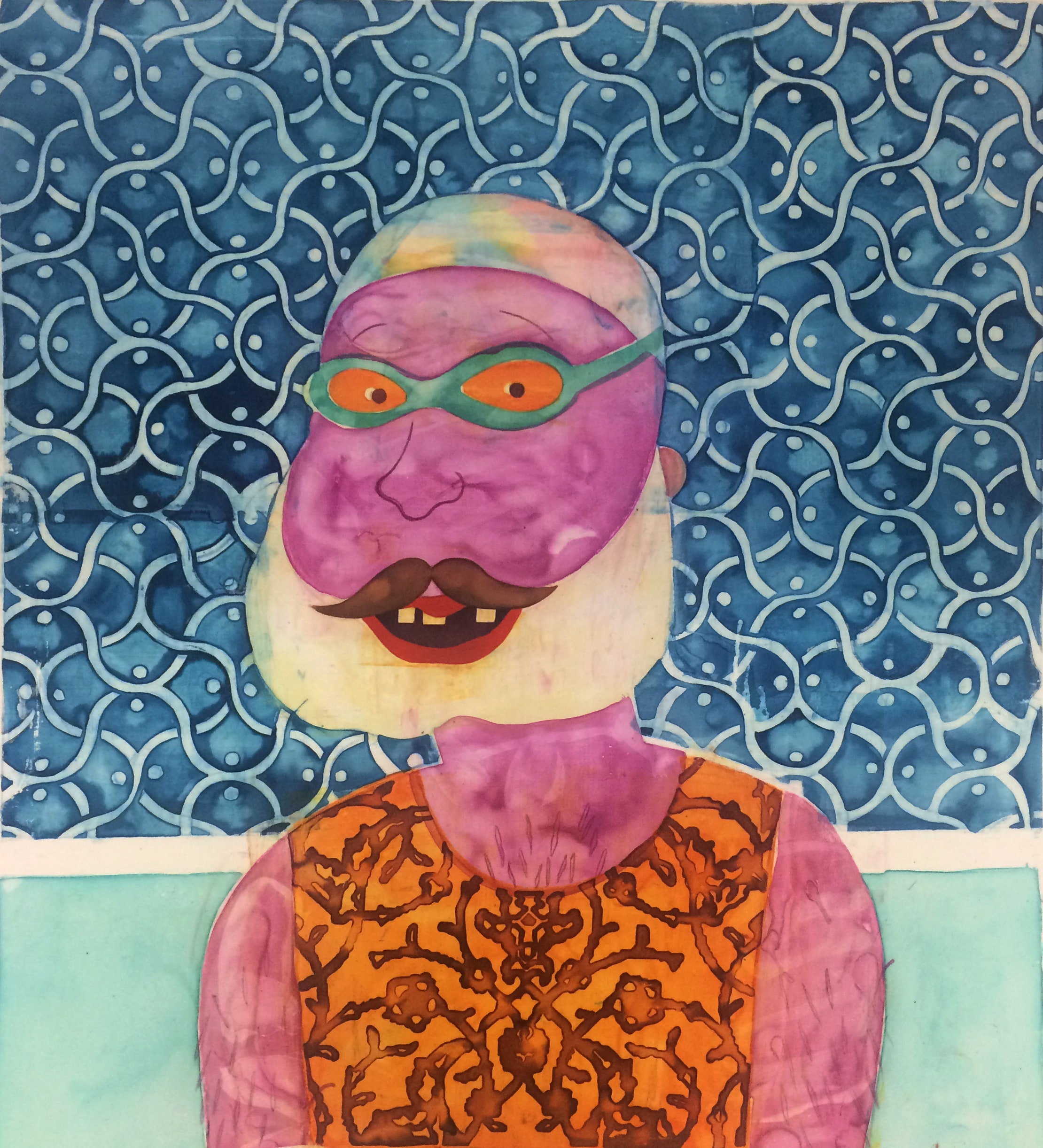Iranian artist Orkideh Torabi grew up with art all around her. “Culturally, art has always been a part of Iranian daily life,” she says, her voice cultivated and composed over the phone. And within her family, education and creativity were always celebrated: Her father studied to be a naval officer in the United States, and on her mother’s side, she comes from a long line of artists (she’s particularly inspired by her uncle, the director Bahram Beyzai, who is now a professor at Stanford University). But it wasn’t until she moved to Chicago from Tehran about five years ago that she felt she could fully be herself.
“The view of women is so heavily conservative; they don’t have a voice,” she tells me. “I struggled when I stepped outside the confines of my house.” After studying graphic design and illustration in Tehran and a stint teaching studio art at a university (even her male students had trouble finding their voice, she says), her father encouraged her to come to the United States.
Torabi studied painting at the Art Institute of Chicago and finally found her stride in subjects she had always explored: women’s rights and gender power structures. “I have more freedom here,” she says. “I was able to analyze and observe everything from the outside.” She began evolving a style she had started as an undergraduate in Iran, which took influence from the shapes and lines of Persian miniatures — paintings that appeared in illustrated manuscripts beginning in the thirteenth century.
“Some of these manuscripts are full of weird creatures and human beings ripping each other to pieces,” Torabi explains of the influences she gravitated toward in her earlier paintings of women. But she began to feel that her focus was being misinterpreted, that it was too straightforward. So she shifted her eye toward male images.
Using the aesthetic and storytelling style of Persian miniatures, Torabi has spent the past few years creating paintings that depict modern Iranian men from a flat, cartoonish perspective. These subjects — tattooed, mouths agape, baby-wielding — are portrayed in paintings with titles like *I’ll catch you!*, *Daddy’s cotton candy* (part of a series called “Madonna”) and *King of the heaven*. They’re funny enough to make you smile (or maybe even laugh out loud), but you can also feel the grime of male entitlement that’s been festering for centuries in Iran and beyond.
“I added humor to my work because it becomes more universal, more accessible to different ranges of people,” she explains. “The evolution that occurred naturally here has helped me to understand the world on a larger scale.”
Now, here’s a selection of paintings from Torabi’s series:

|||Orkideh Torabi, *Daddy’s cotton candy*, 2018. 43 x 37 inches, fabric dye on stretched cotton.|||

|||Orkideh Torabi, *We can do it*, 2018. 48 x 60 inches, fabric dye on stretched cotton.|||

|||Orkideh Torabi, *Killing some time*, 2017. 43 x 37 inches.|||

|||Orkideh Torabi, *King of the heaven*, 2018. 43 x 37 inches, fabric dye on stretched cotton.|||

|||Orkideh Torabi, *The greater wall*, 2017. 48 x 60 inches, fabric dye on stretched cotton.|||

|||Orkideh Torabi, *Chubby Mubby*, 2018. 43 x 37 inches, fabric dye on stretched cotton.|||

|||Orkideh Torabi, *There you go!*, 2017. 43 x 37 inches, fabric dye on stretched cotton.|||
*Molly Elizalde is an associate editor at Lenny*.



